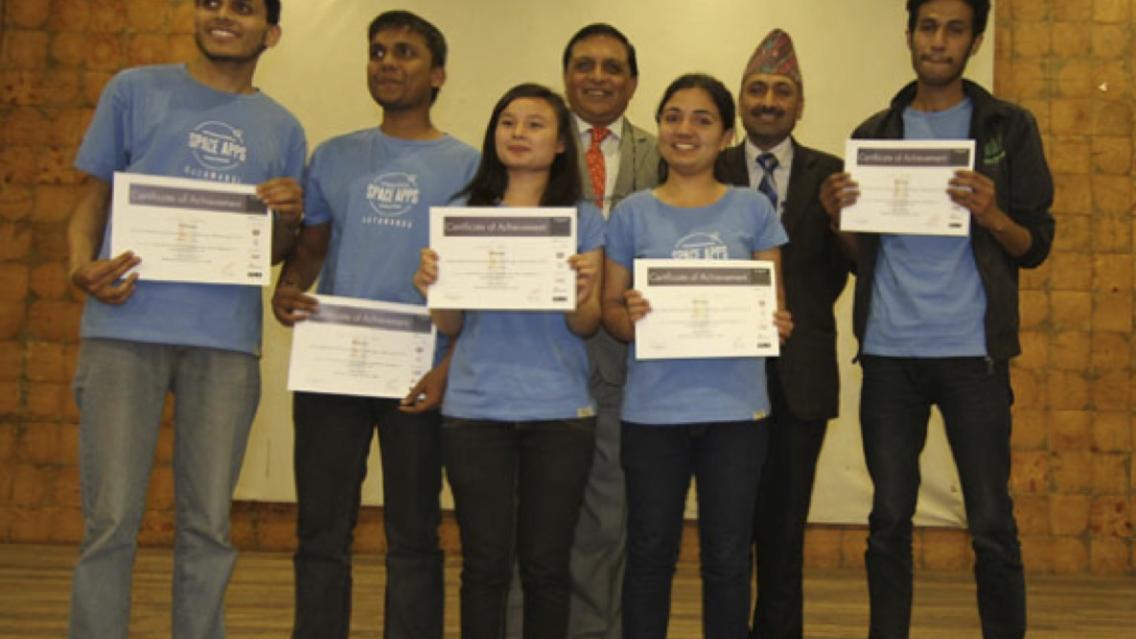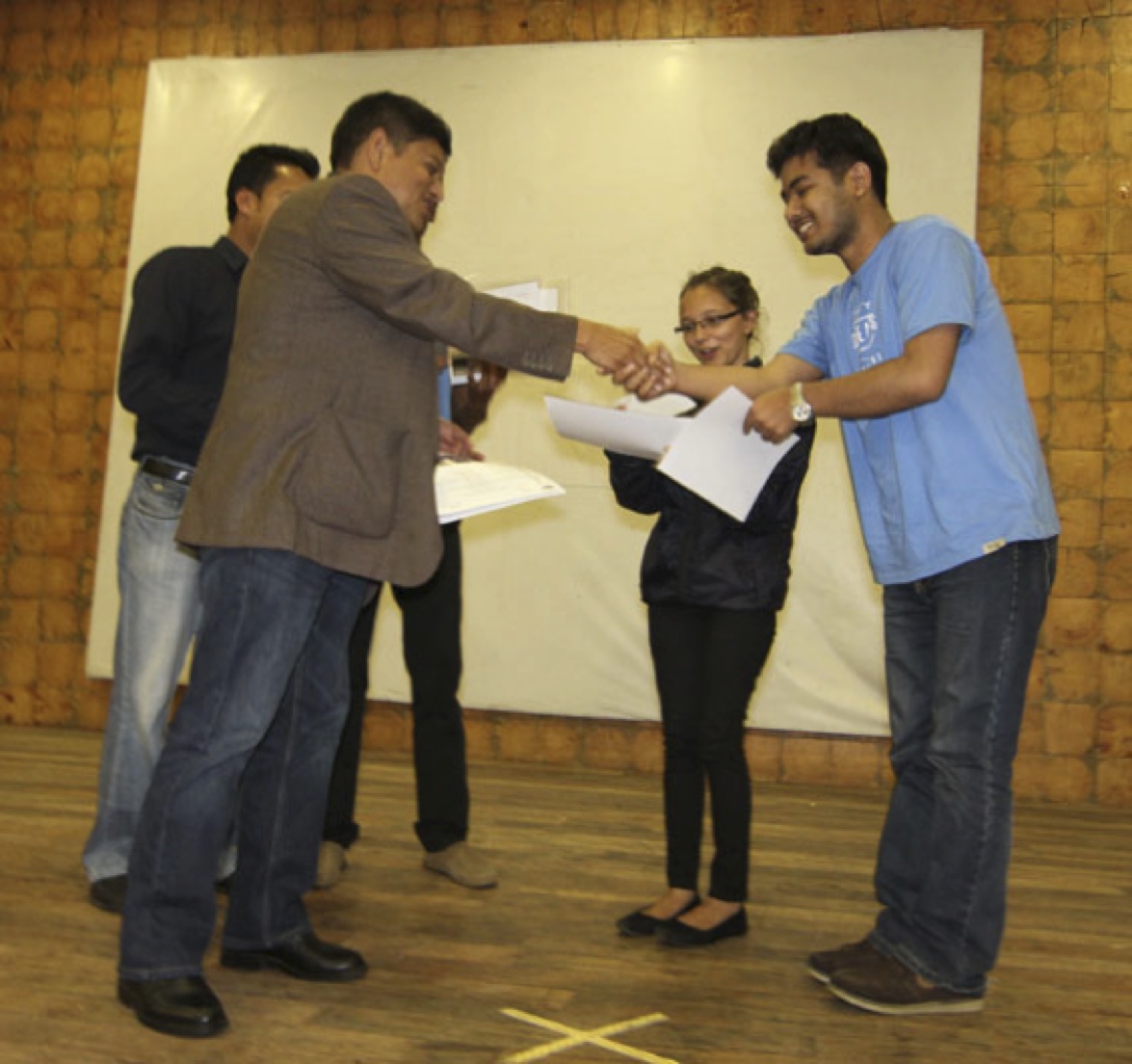2015 International SpaceApps Challenge in Kathmandu

The NASA International Space Apps Challenge is an international mass collaboration engaging developers, Geographic Information System (GIS)-savvy students, engineering students, and entrepreneurs to work together on solving challenges relevant to improving life on Earth and in space. The event takes place over 48-hours in cities worldwide and includes a virtual participation option, allowing involvement by innovators around the globe who are unable to travel to a host city.
The Space Apps Challenge in Kathmandu, Nepal, 11-12 April 2015, drew 63 participants, including 11 women, from a variety of different backgrounds. They formed 14 groups to take on challenges addressing environmental issues during the two-day event.
NASA issued over 25 challenges in four areas (Earth, outer space, humans, and robotics) for this year’s event. Participants also had the option of choosing from among challenges offered to address local environmental issues. Three of the fourteen Kathmandu groups accepted a local challenge.

One of those three, Team Smart Energy Meter, won for developing an Arduino-based energy monitoring device. The device uses an electrical current sensor to read analog data, which is then converted to a digital value and uploaded to a database that can be accessed through an Android application.
Second prize went to Team Clean Water Mapping, for an application prototype that relies on crowdsourcing to locate unidentified water sources. Once the app is fully developed, it is expected to contribute to improved water resource monitoring.
Team Tracking and Sensing through Android Robotics, which tackled the global challenge ‘Sensor Yourself’, won third place. Their Android robot tracks nearby objects via on-board sensors in an Android smart phone. Possible applications for their robot include tracking geological artifacts, scanning atmospheric regions, navigating mountains for waste disposal, and even assisting in the search for extraterrestrial objects.
Team Astroact received a Facebook-based People’s Choice Award. To meet a global challenge called ‘Visualize the Asteroid Skies’, Team Astroact built an app that simulates the position of planets and potentially hazardous asteroids and predicts when they will pass near the Earth.
The winner, first runner-up and second runner-up won cash prizes of NPR 30,000, NPR 20,000, and NPR 10,000, respectively. Having solved a local challenge, the winning team is not eligible to compete in the global competition. However, they will refine their app with support from the SERVIR-Himalaya Initiative of ICIMOD.
The second and third place teams, Team Clean Water Mapping and Team Tracking and Sensing through Android Robotics, have been nominated for global judging. Team Astroact will also compete for the global People’s Choice Award.
Kathmandu joined more than 130 cities across the globe in striving to meet the SpaceApps Challenge, an event acknowledging that the world is facing serious challenges - and that we all have to work together to approach them.
Note:
The event in Kathmandu was jointly organized by the International Centre for Integrated Mountain Development (ICIMOD) under the framework of SERVIR-Himalaya and YoungInnovations, in collaboration with Alternative Energy Promotion Centre (AEPC). It was supported by Women Leaders in Technology (WLIT), Karkhana, CSIT Association of Nepal (CSITAN), Robotics Association of Nepal (RAN), and Games & Apps for Mobile Education Studios.

